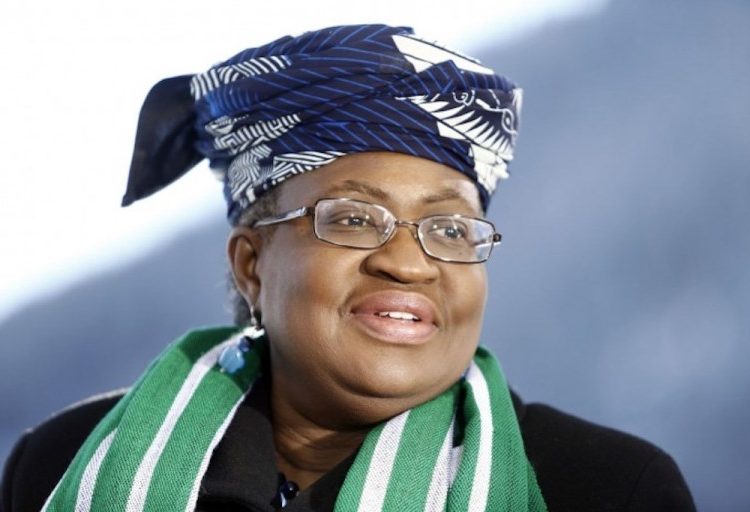The United Kingdom has said Nigeria will get a £95 million investment fund to support climate-resilient agriculture (CRA) in the country.
This is as director-general of the World Trade Organisation (WTO), Ngozi Okonjo-Iweala, emphasised that climate financing cannot be effective if trade policies are ignored.
Speaking at the COP27 climate conference in Egypt yesterday, Okonjo-Iweala described the gap between trade policies and climate adaptation as “a big missing piece.”
CRA uses existing natural resources through crop and livestock production systems to achieve long-term higher productivity and farm incomes under climate variabilities.
The UK government made the new commitment while announcing an increase in the climate adaptation budget to £1.5 billion by 2025.
“In Nigeria, the UK will provide a £95 million investment to support the development of climate-resilient agriculture programmes, for example through scaling up heat tolerant crop varieties,” a statement from the UK reads.
“The funding will support more than four million people, including two million women, to increase productivity while reducing emissions.”
James Cleverly, UK’s foreign minister, said the budget was scaled up to support developing countries facing the devastating impact of climate change, to adapt effectively.
At the COP27 climate conference in Egypt on Monday, Cleverly said the UK was delivering on the commitments made at COP26 in Glasgow and urged other countries to do the same.
The UK had pledged £290 million at COP26.
The new budget commitment was announced in a session with the theme ‘Accelerating adaptation in Africa’, which aims to support the international community to make COP27 a critical moment for increasing climate financing in Africa.
“The Glasgow climate pact gave the world the tools to limit the rise in global temperature to 1.5 degrees and build a secure and sustainable future,” Cleverly said.
“Now is the time for all countries to step up their action on climate change and deliver the tangible change needed.
“The UK will continue to play a leading role in this mission. The funding we have announced will support countries which are facing the devastating impact of climate change, to adapt effectively.”
Cleverly said Africa would be prioritised in the climate financing commitment, adding that the UK has partnered with the African Development Bank (AfDB) to open up a new climate finance window that Africa can benefit from.
He said about £250 million has already been contributed to the window.
Antonio Guterres, the United Nations secretary-general, called for an accelerated effort by world leaders to develop an effective roadmap to increase climate action.
He tasked financial institutions with adapting their business models and bankable projects to increase climate financing for developing countries.
“There is money for adaptation but countries need to develop bankable projects to access them,” he said.
Other leaders present include Akinwunmi Adesina, president of the AfDB, Nana Akufo-Addo, Ghana’s president, and William Ruto, Kenya’s president.
Meanwhile WTO DG, Okonjo-Iweala acknowledged the pledges made by countries and other international partners to mitigate the effects of climate change, but said restricting trade would negate achievements gained.
“The WTO doesn’t have money to announce but I’m pleased to hear the new financial commitments being made, thankful to all the donors,” she said.
“However, whilst financing is important, trade and policies can block everything. Trade policies and restrictions can be a bottleneck for money to work. By leaving out trade policy from what is being done on climate change side is a big missing piece.”
Okonjo-Iweala also said trade is often viewed as part of the problem but, in reality, is it part of the solution to climate change and food security.
She noted that trade provides food for one in every six people around the world and, therefore, has an important role in ensuring that food and other essential goods, such as fertiliser and climate adaptation goods, and services get to where they are needed.
The WTO leader further urged governments to include trade elements in their national climate adaptation plans — the building blocks for implementing global climate goals at a national level.
As global food demand continues to soar, so does the dramatic impact of climate change on agricultural land and livestock productivity.
According to WTO, climate change can negatively influence trade by upsetting supply and distribution networks and driving up trade costs.
This makes its work, as an organisation, crucial to advancing climate action because it is the cornerstone of the multilateral global trading system, WTO said.
The organisation noted that by connecting people and markets, trade helps lower costs and disseminate snew environmental technologies.
“Trade can also make resource use more efficient, reducing the strain on our ecosystems. New trade rules can help our economies become greener, cleaner, more prosperous, and more inclusive,” WTO added.
The COP27 aims to provide a stage for world leaders to share insights on how to coordinate efforts to boost agricultural productivity, build resilience in the farm sector, reduce losses in food supply chains and deploy sound policies to strengthen the response to a potential food crisis.











